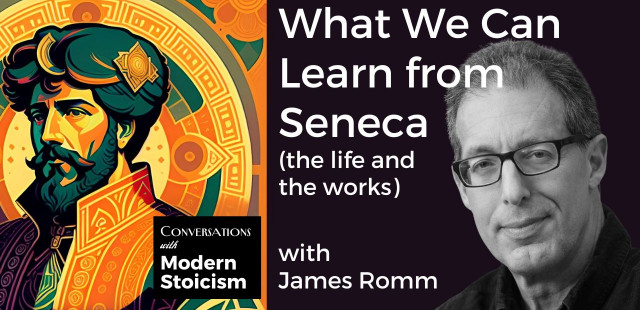Unlike this image of a bygone age, modern life is fast-paced. Aditya Nain, who teaches philosophy in Pune, India, considers how Stoicism, in particular one simple idea from Seneca, can provide a powerful and much needed antidote to the headlong rush of living today….

Seneca’s Simple Reminder
One of the defining characteristics of modern life is the pace at which it is lived. There is no lack of hard work these days and in fact, the modern human being probably works more hours than ever before. A fast paced life, like a fast train, does not have too many stops along the way. The faster we move, the more difficult it is slow down, let alone stop. When applied to mental life, this translates into an ever decreasing awareness of why we’re headed to our destination and whether the route we’re on actually leads to where we’re hoping to reach.
We’re all acutely aware of our destination. In fact, the frenzied pace of modern life is geared towards attaining its goals very well. It is only when you know where you’re headed that you can move towards it with increasing pace. We however are not as acutely aware of why we’re headed there. The ‘where to’ does not answer the ‘why..to’ question. It is assumed that the why is obvious and takes care of itself. In fact, the why question is seldom asked with any seriousness.
There are rare moments of clarity though. Moments in which time stops, movement stops, travel stops and we wonder why we’re headed where we are. At these moments, i.e. at these stops along the way, the where gets replaced with the why and therefore speed takes a back seat to caution. If you’re speeding towards an oncoming vehicle, an increase in pace will not help you in anyway avoid a collision. Only a change of direction will. This simple truth is voiced by Seneca in ‘On the Happy Life’,
‘S measure of the difficulty of achieving the happy life is that the greater a man’s energy in striving for it, the further he goes away from it if he has taken a wrong turning on the road; once this starts leading him in the opposite direction, his very swiftness separates him increasingly from his goal’
Seneca’s idea is simple, yet one that we actively shy away from. The enormity of realising one is on the wrong path is frightening and we’d rather not bother most of the time. Seneca reminds us of it, in one beautiful sentence, and asks that we recognise its importance. We have grown accustomed to doubling our pace of work in times of doubt. It seems, when in doubt, work harder. Working harder however does not equate to working right. It’s as though we wish to believe that we will eventually reach our destination, irrespective of which direction we set out in. No driver, when on the road and having realised he’s moving in the wrong direction, will resolve the situation by increasing the speed of the vehicle without a change in direction.
Seneca’s point isn’t that we aren’t helping ourselves. It’s that we’re harming ourselves. He’s asking us to stop and check where we are on the map and in which direction we’re heading. In other words, taking the slow train may not always be a bad idea. The more stops along the way, the more opportunities to check our progress.
To emphasise on working hard is to miss an important component of travelling towards happiness. While hard work is of course essential, of equal importance is the monitoring of the means used and the route taken. The first condition seems to be easier to fulfil and once we’ve gathered momentum, we seem to keep keepin’ on. It is way harder to stop and question why. This is especially true for us today, when the chain of means, which is supposed to lead us towards happiness, has become longer than ever. In the whirl of the present, we often forget the perceived future which gave rise to it.
Seneca’s point is simple, but often forgotten and we thank him for the reminder!
Aditya Nain has donned the hat of a philosopher, a lecturer, an entrepreneur, a journalist and a musician in a very short span. He completed his MA in Philosophy from the University of Pune and holds a Diploma in Finance from the University of London (International Programmes). He is a lecturer at the Symbiosis School for Liberal Arts in Pune, India. You can read his blog here.
Other than his academic pursuits, Mr. Nain has a serious interest in investments and publishes an independent e-newsletter on the subject, called ‘Pragma Cash’.





Very true – the morning and evening Stoic Meditations are a good “quick fix” in this modern world to take time out each day to refocus our life – similar to the Ignation Spiritual Exercises and the Benidictine Lectio Divina.